China's Slowing Economy Impacts European Investment
By Rediff Money Desk, Beijing May 10, 2024 10:45
European companies are becoming less optimistic about China's market due to a slowing economy and concerns about regulations. Investment plans are shifting towards other regions like Southeast Asia and India.
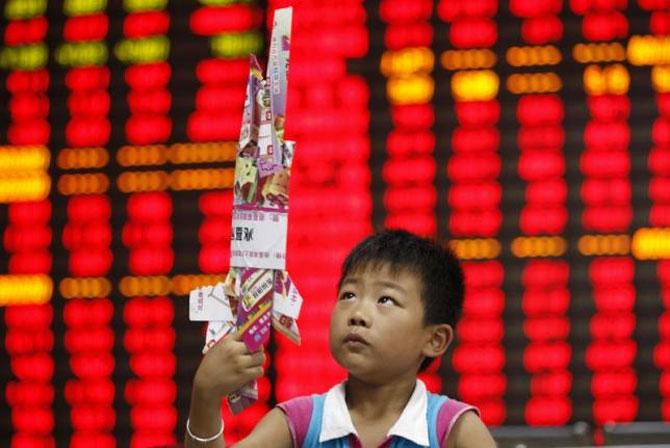
Beijing, May 10 (AP) China is actively seeking foreign investment to boost its slowing growth, but that very sluggishness is weighing on company plans to grow their businesses in the world's second largest economy, an annual survey of more than 500 European companies has found.
The slowing economy is now the dominant concern of respondents to the European Chamber of Commerce in China survey, which was released Friday. China still ranks high as a place to invest, but the share of companies considering an expansion of their operations in the country this year fell to 42 per cent, the lowest ever recorded.
The business outlook is the most pessimistic yet, with companies' expectations for growth and profitability taking a hit, and concerns about competition intensifying, the Chamber said in its business confidence survey.
The economic worries are layered on top of long-running complaints about regulations and practices that companies say favour their Chinese competitors or are unclear, creating uncertainty for businesses and their employees. Others including the American Chamber in China have expressed similar concerns.
Those older issues are now compounded by the weaker economy, eroding business confidence, said Jens Eskelund, the president of the European Chamber.
Companies are beginning to realise that some of these pressures that we have seen in the local market, whether it's competition, whether it's low demand, that they are taking on perhaps a more permanent nature, he told journalists earlier this week. And that is something that is beginning to impact investment decisions and the way they go about thinking about development of the local market.
The government is launching programs to boost consumer spending but confidence remains low because of a weak job market. Economic growth came in at a faster than expected 5.3 per cent annual pace in the first three months of the year, but much of the GDP growth came from government spending on infrastructure and investment in factories and equipment.
Massive investment in industries such as solar power panels and electric cars has created intense price competition, squeezing profits. More than a third of the survey respondents said they have observed overcapacity in their industry. For 15 per cent of the companies, their China operations finished 2023 in the red. Foreign companies need growth in domestic demand, not manufacturing capacity, Eskelund said.
What is important to foreign companies is not necessarily sort of a headline GDP number 5.3 per cent, whatever but the composition of GDP, he said.
Close to 40 per cent of companies said they have moved or are considering moving future investments out of China. Southeast Asia and Europe are the biggest beneficiaries, followed by India and North America. Nearly 60 per cent said they are sticking with their investment plans for China, but that was down from last year.
China's allure as a top investment destination is fading," a chamber report on the survey said. "Without meaningful improvements to the business environment, companies will continue to pursue opportunities in other markets that they perceive to offer more reliability, predictability and transparency.
About one-third of the companies were optimistic about growing their business this year, down from more than half in 2023, and only 15 per cent were optimistic about profit growth.
More than half expect to cut costs in China this year, including 26 per cent who plan to reduce the size of their staffs which the report said "will further increase the pressure on an already strained job market. (AP)
The slowing economy is now the dominant concern of respondents to the European Chamber of Commerce in China survey, which was released Friday. China still ranks high as a place to invest, but the share of companies considering an expansion of their operations in the country this year fell to 42 per cent, the lowest ever recorded.
The business outlook is the most pessimistic yet, with companies' expectations for growth and profitability taking a hit, and concerns about competition intensifying, the Chamber said in its business confidence survey.
The economic worries are layered on top of long-running complaints about regulations and practices that companies say favour their Chinese competitors or are unclear, creating uncertainty for businesses and their employees. Others including the American Chamber in China have expressed similar concerns.
Those older issues are now compounded by the weaker economy, eroding business confidence, said Jens Eskelund, the president of the European Chamber.
Companies are beginning to realise that some of these pressures that we have seen in the local market, whether it's competition, whether it's low demand, that they are taking on perhaps a more permanent nature, he told journalists earlier this week. And that is something that is beginning to impact investment decisions and the way they go about thinking about development of the local market.
The government is launching programs to boost consumer spending but confidence remains low because of a weak job market. Economic growth came in at a faster than expected 5.3 per cent annual pace in the first three months of the year, but much of the GDP growth came from government spending on infrastructure and investment in factories and equipment.
Massive investment in industries such as solar power panels and electric cars has created intense price competition, squeezing profits. More than a third of the survey respondents said they have observed overcapacity in their industry. For 15 per cent of the companies, their China operations finished 2023 in the red. Foreign companies need growth in domestic demand, not manufacturing capacity, Eskelund said.
What is important to foreign companies is not necessarily sort of a headline GDP number 5.3 per cent, whatever but the composition of GDP, he said.
Close to 40 per cent of companies said they have moved or are considering moving future investments out of China. Southeast Asia and Europe are the biggest beneficiaries, followed by India and North America. Nearly 60 per cent said they are sticking with their investment plans for China, but that was down from last year.
China's allure as a top investment destination is fading," a chamber report on the survey said. "Without meaningful improvements to the business environment, companies will continue to pursue opportunities in other markets that they perceive to offer more reliability, predictability and transparency.
About one-third of the companies were optimistic about growing their business this year, down from more than half in 2023, and only 15 per cent were optimistic about profit growth.
More than half expect to cut costs in China this year, including 26 per cent who plan to reduce the size of their staffs which the report said "will further increase the pressure on an already strained job market. (AP)
Source: ASSOCIATED PRESS
Read More On:
DISCLAIMER - This article is from a syndicated feed. The original source is responsible for accuracy, views & content ownership. Views expressed may not reflect those of rediff.com India Limited.
You May Like To Read
TODAY'S MOST TRADED COMPANIES
- Company Name
- Price
- Volume
- GTL Infrastructure
- 2.93 ( -4.87)
- 226206286
- IFL Enterprises
- 1.30 (+ 4.84)
- 81461564
- Vodafone Idea L
- 16.79 (+ 0.66)
- 67447398
- NCL Research
- 0.95 ( -4.04)
- 31996628
- Franklin Industries
- 3.73 (+ 3.32)
- 21511209
MORE NEWS

International Centre for Audit of Local...
Comptroller and Auditor General of India Girish Chandra Murmu will inaugurate the...

Alphacorp Invests Rs 350 Cr in Luxury Gurugram...
Alphacorp will invest Rs 350 crore to develop a luxury housing project in Gurugram,...

Sebi's New Asset Class for High-Risk Investors:...
Sebi proposes a new asset class for high-risk investors, offering access to strategies...



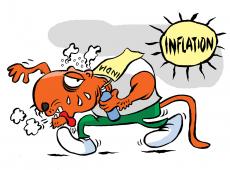

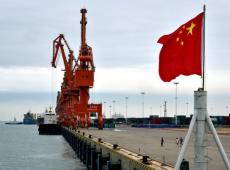
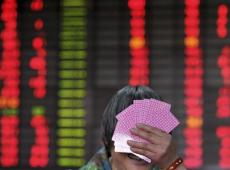


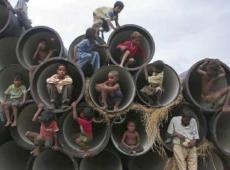

 © 2024 Rediff.com India Limited. All rights reserved.
© 2024 Rediff.com India Limited. All rights reserved.